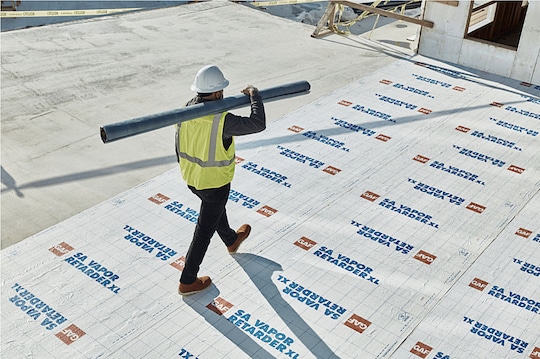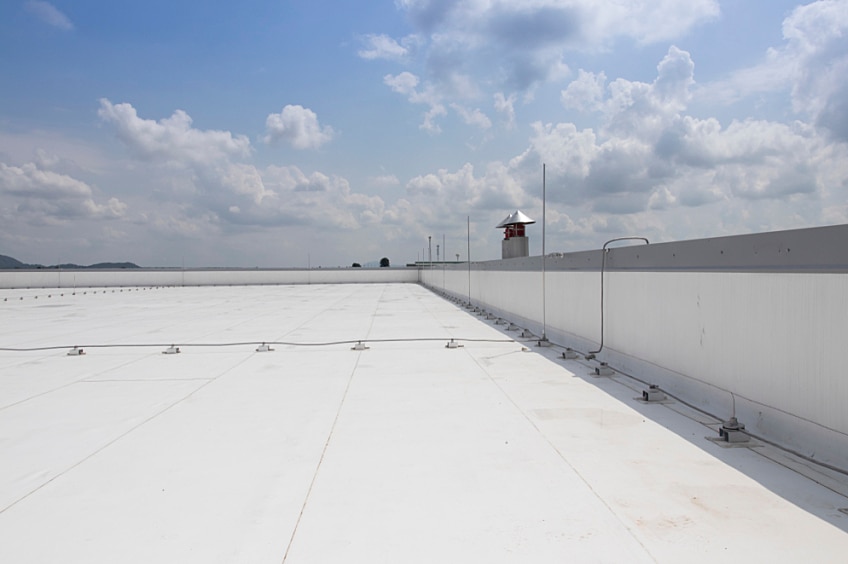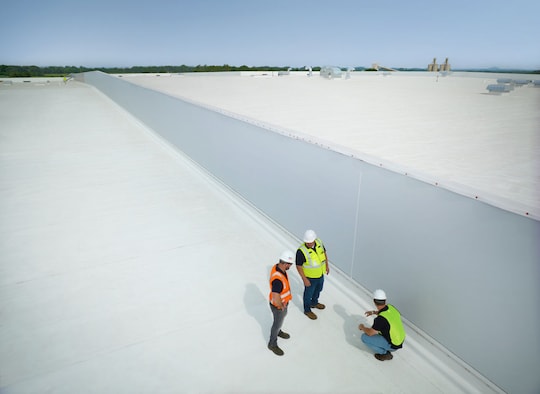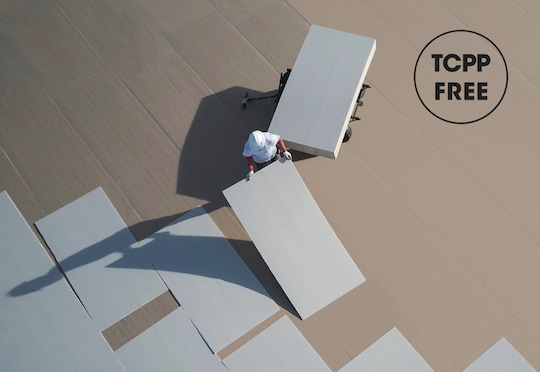
Building owners have a lot to think about when selecting a roof for their commercial property. When it comes to commercial roofs, we have some information to help you understand what factors play a role in the roofing system's success, and its ability to protect the building, people and contents within it.
1. Products
There are several different types of commercial roofing systems, and each has different benefits. A roofing professional can help building owners decide between the following roofing system types depending on the unique needs of the building:
Single-ply: Single-ply membrane systems are the most popular commercial roofing material because single-ply is strong, durable, and provides robust protection against UV damage.
Liquid-applied: Liquid-applied roofing systems are also strong and durable, and they're ideal for challenging roofs with a lot of equipment and penetrations. Ensuring flashing integrity and regular membrane cleaning can help extend the life of a liquid-applied roofing system.
Modified-bitumen: A typical modified bitumen roofing system consists of two plies of roofing membrane. The membranes contain synthetic rubber which provides greater elongation than some other asphaltic systems. Modified-bitumen systems have a wide range of application methods, and can be hot-mopped, cold-applied, heat-welded or self-adhered.
Built-up roofing: Built-up roofs are the oldest of the current roofing technology, and consist of melting bricks of hot asphalt in a large metal kettle and using mops to apply that asphalt in-between a multi-ply BUR system.
It is recommended that all components of a roofing system are purchased from the same manufacturer. This helps ensure that the components are designed to work together. It also may make the system eligible for enhanced warranty or guarantee coverage from the manufacturer.
2. Energy
The rise of more stringent energy codes has increased the need for additional roof insulation and increased roof surface reflectivity. Increasing the amount of insulation in the roof and installing highly reflective roofing materials can help improve the energy efficiency of buildings.
3. Maintenance
Regular roof maintenance may be required in order to keep your manufacturer's guarantee or warranty in effect.
Maintenance programs can also help commercial building owners manage risk. Regular maintenance can help you address minor problems before they become expensive issues, which may ultimately help owners save money long-term.
Maintenance staff should perform regularly scheduled roof inspections at all locations to ensure that the roof is still in good shape. Look for dents, tears, ponding water, or other signs of damage. Roof drains should be cleared regularly to ensure that water is allowed to drain unimpeded. Regular inspections and maintenance allow potential problems to be discovered early, before they cause other damage.
Property maintenance companies and building owners can talk with manufacturers such as GAF to learn more about proper roof maintenance. Click here to get started.
4. Warranty/Guarantee
A good warranty or guarantee program is one of the top reasons commercial building owners may choose a particular roofing system. Building owners want to know that they can count on the manufacturer to address any covered issues that may arise. Many roofing manufacturers offer warranties or guarantees for building owners that have no dollar limit on covered repair expenses.
GAF offers several commercial roof system guarantees and warranties, ranging from 12 to 35 years of coverage, depending on the particular type of roofing system installed, how it is installed, and by whom. The Diamond Pledge NDL Roof Guarantee offers strong protection for commercial roofs—and for certain eligible systems, the coverage period can be extended by contracting with a GAF certified contractor* to provide maintenance throughout the roof's life. Additional requirements apply, see gaf.com for details.
With proper maintenance, the right roofing system can provide protection for years to come.
*Contractors enrolled in GAF certification programs are not employees or agents of GAF, and GAF does not control or otherwise supervise these independent businesses. Contractors may have agreed that they will use GAF roofing products, and may receive benefits, such as loyalty rewards points and discounts on marketing tools from GAF for participating in the program





